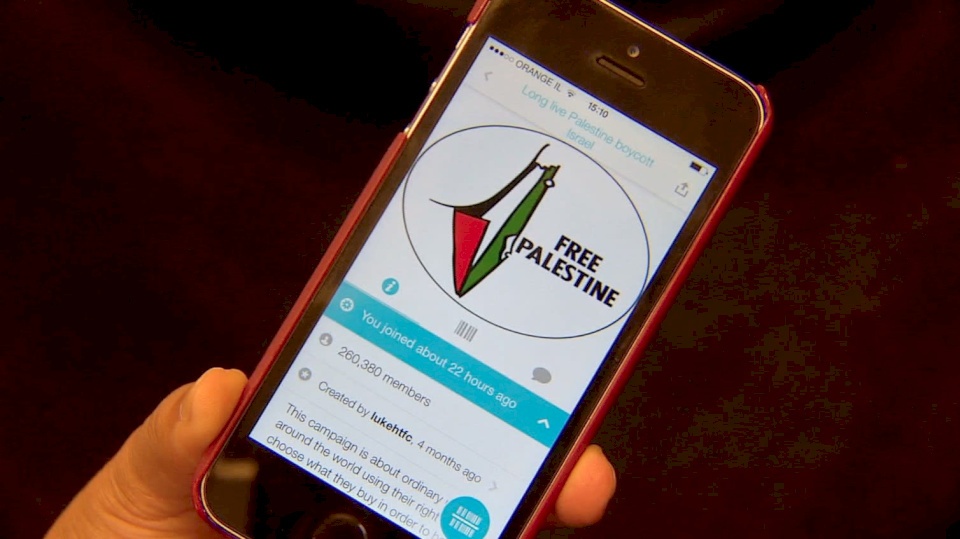
Companies Supporting Israel Acknowledge the Impact of Boycotts: Decline in Profits and Reputation
SadaNews Economy - In a shift reflecting the economic dimension of popular boycotts, major global companies are facing increasing accusations of involvement in supporting Israel, which has made them susceptible to accumulated financial losses that have clearly reflected in global markets.
Shares of these companies have seen declines of up to 15%, amid a rise in boycott campaigns that have gained growing popular momentum since the outbreak of the Gaza war in October 2023.
With U.S. support, Israel has been committing genocide in Gaza since October 7, 2023, which includes killing, starvation, destruction, and forced displacement, ignoring all international calls and orders from the International Court of Justice to cease these actions.
The Israeli genocide has resulted in about 64,000 martyrs and about 161,000 injured Palestinians, most of whom are children and women, over 9,000 missing persons, and hundreds of thousands displaced, with famine resulting in the deaths of 339 Palestinians, including 124 children.
Despite attempts by these companies to circumvent the campaigns by spending millions of dollars on advertising and marketing, their latest annual reports have begun to reveal the extent of the pressure being exerted on them.
The term "boycott" has appeared explicitly for the first time in the annual reports of the targeted companies, which experts have considered an indicator of a deep understanding of the impact these campaigns have on the companies' reputations and positions in international markets.
Accumulated Losses
Anadolu Agency quoted Burak Dogan, a faculty member at the Istanbul-based Bahçeşehir University’s Faculty of Economics and Administrative Sciences, stating that the initial losses from the boycott campaigns have become evident in the financial markets.
Dogan, who participated in preparing a report for the Istanbul-based Islamic Economics Research Center of the "Ilke" Foundation, said, "We studied the effects of the boycott during the early periods (of the war on Gaza), and we noticed that the stock prices of the targeted companies declined between 10% and 15%."
He explained that the data for 2024 clearly reflected the beginning of a new phase of decline in sales for those companies, especially in Turkey, as the upward growth trend recorded in previous years has been broken.
He affirmed that this decline is not temporary or short-term but has continued over several consecutive financial quarters, "which means that the impact of the boycott has become part of the long-term economic landscape."
Dogan noted that the boycott campaigns against products linked to Israel are not new, as their origins date back to 2005 when more than 170 Palestinian civil society organizations announced the "Boycott, Divestment and Sanctions" (BDS) movement.
This campaign, which quickly turned into a global movement, targeted multinational companies such as "Microsoft," "Intel," "Carrefour," "Chevron," and others that were described as involved in supporting Israel and sustaining its economic system.
Officially Documented Boycott
Dogan pointed out that some giant companies can no longer deny the impact of the boycott, as companies like Coca-Cola and Starbucks have been forced to indirectly acknowledge the impact of these campaigns, with the term "boycott" appearing for the first time in their recent annual reports.
He added, "In Coca-Cola's report, the term 'boycott' was mentioned once, while it appeared 6 times in Starbucks’ report."
He considered that this change in corporate discourse "reflects a deep realization by these companies of the seriousness of the campaign on their financial stability and commercial reputation," confirming that they have resorted to intensive marketing and advertising strategies in an attempt to counter the rising impact.
Public Pressure
The Turkish academic emphasized that the real impact of the boycott lies in its continuity, mentioning that "it is not important for new boycotters to join as much as it is important for those who started the boycott to maintain their position. Companies are indeed facing significant losses."
He urged boycotters to continue adopting this methodology.
Stressing that the accumulation of economic and social pressures could contribute to creating a new global awareness that could ultimately reflect on Israeli policies.
Due to economic boycotts, Western companies have announced closing their doors in some countries in the region, such as Carrefour, Kentucky Fried Chicken, and Pizza Hut, in addition to the damage to the Israeli economy as a result of the boycott and the ongoing genocide.
According to the Israeli economic site Wasla (Private), 60,000 Israeli companies closed their activities in 2024.
Incoming tourism to Israel declined by about 70% during the past year compared to 2023, according to the Israeli Central Bureau of Statistics, with numbers dropping to 952,000 tourists in 2024, after being 3 million tourists in 2023.
Many American companies have also been affected due to the popular boycott, such as Domino's, McDonald's, and Starbucks.
Anadolu Agency

Oil Prices Decline as Tensions Ease in the Middle East

Gold Prices Rise Again After a Tough Week for Investors

Al-Falih: We have signed agreements worth 20 billion riyals... and there is no ceiling for...

Egypt establishes first sodium cyanide production plant in the Middle East

Trump Cancels ‘Punitive’ Tariffs on India After Its Pledge to Stop Buying Russian Oil

The European Union Announces the Twentieth Package of Sanctions on Russia

Tech Giants Inject $650 Billion in AI Race
